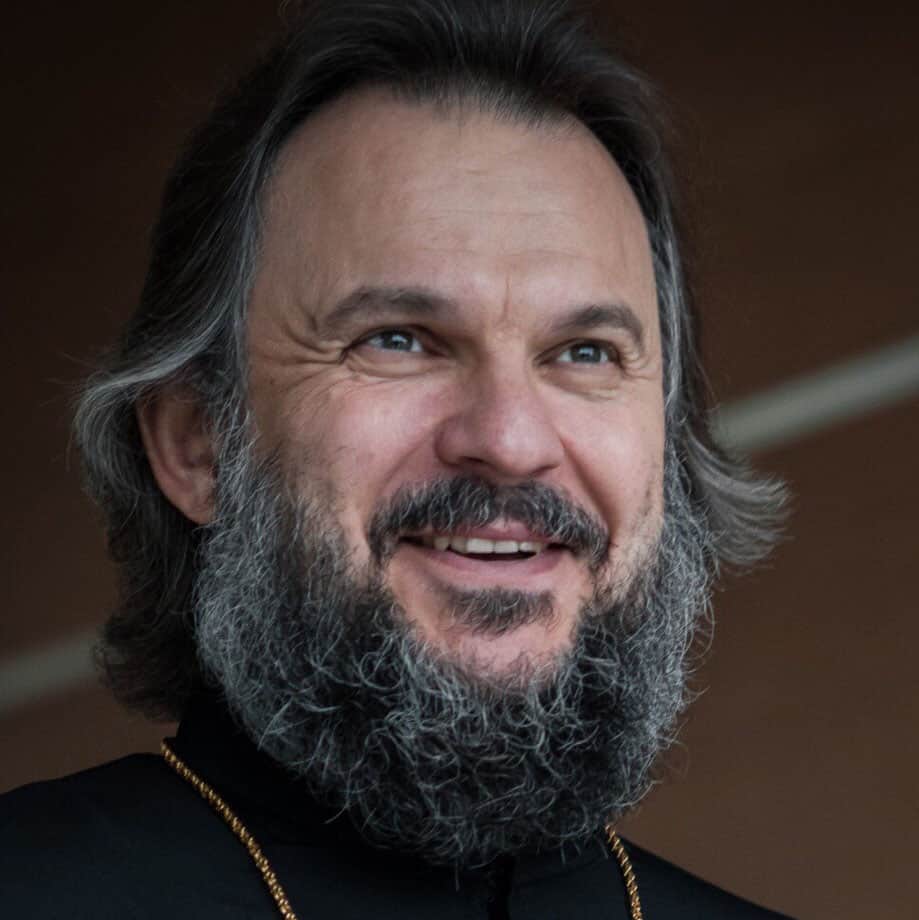For if you forgive men their trespasses, your heavenly Father will also forgive you: But if you forgive not men their trespasses, neither will your Father forgive your trespasses. (Matthew 6: 14-15)
Sometimes before giving a sermon at church, I just want to be silent. So that this silence would become a question for each of us: who am I? Who am I really? What am I doing today in this dark church among hundreds of similar seekers? What are our eyes looking at, which sparkle in the candlelight and with tears? So that this silence would give us an opportunity to reflect on the fact that we are lost in this world, despite the impression of our well-being, prosperity, and well-fed life.

Metropolitan Ambrose of Tver and Kashin
Adam hid from God in a blessed garden, unable to endure the Divine presence. He knew that he himself had ruined his relationship with the Father. We are already hiding from each other, not knowing who ruined everything, unable to endure the hardships, joys, doubts, sins, and oddities of each other.
The thing is no one took either communion with God or communion with each other away from us. Nobody took our love away from us. Some people say circumstances make us cruel. They say that unjust people or deprivation make us cruel. Maybe this is partly true. But this cruelty is a terrible sentence with which we condemn ourselves to loneliness and longing.
And now the Lord gives us an opportunity to try to melt this cruelty in ourselves, to change our minds, to turn to our neighbors and to try to forgive them. To forgive not in words, which for many of us have already become a habitual go-ahead: “God will forgive you, and I forgive you,” but to forgive differently by radically changing your attitude towards a person. We may not be able to do this right at this moment, but today, here and now, we can begin this journey. We can make a promise to ourselves and to God to love and support the person who needs our forgiveness. And if we love him and support him with all his difficulties, with all his features that even seem unacceptable to us, then only this way will we begin to approach forgiveness. Only this way can we ourselves begin to heal a painful wound in our souls.
The Lord teaches us to forgive. To forgive “until seventy times seven.” To forgive those who not only offended us, but humiliate, persecute, hurt, slander, and hate us. To forgive those who want to kill us. To forgive those who kill us, as He Himself forgave those who nailed Him to the Cross. The Lord tells us: stop counting, stop noticing how many sins you have forgiven your neighbor. Forgiveness is limitless. “Freely you have received, freely give,” He teaches us. We received forgiveness for free, and we received it in full, and therefore we must give it without any counting, just like that, as much as needed. And as soon as we realize that it is in our power to forgive always, to forgive every time, to forgive everything and everyone, we will gain freedom and inner strength. Because we will cease to be vulnerable in the face of our own grievances. Because we will cease to be prisoners of our own sensitivity and scrupulousness in relation to others. Because we will no longer need to be constrained by concerns about our own dignity and honor, which everyone around seems to want to shake. We can accept everyone, all people, in general, both close ones and those that are far, and not be afraid that they will hurt us. Because if we know how to forgive everything, it will no longer be possible to hurt us.
However, in addition to learning to forgive, we ourselves need forgiveness. We cannot live an absolutely crystal life. Unfortunately, we cannot but hurt our neighbors, hurt our relatives, we cannot be affectionate with everyone and devote all the necessary time and tenderness of our hearts to everyone. This “we cannot” should not sound like an excuse for our supposedly justified weakness. No. In fact, of course, we can – we just don’t want to. And the fault of these deeds or inaction lies with each of us in relation to each other, especially in relation to those closest to us, to those with whom we live under the same roof, with those we eat at the same table. Therefore, each of us needs forgiveness.
The feeling of this guilt in relation to God, in relation to those close and distant, a feeling of repentance and thirst for forgiveness should also teach us to forgive, as it was said by the Lord Jesus in the parable of the debtor. In this parable, a certain master forgave his debtor, and this debtor, in turn, could not forgive a person who owed him some trifle. God has forgiven us, and we often cannot forgive even the much simpler guilt of others – often it is not even guilt, but our inability to tolerate the very presence of another person.
But don’t we fall on our knees before God, babbling incoherently, like that debtor to the master: “I will correct myself, be patient, I will return everything, I will pay everything”? Meanwhile, we know for sure that we will not return anything, we will not return the debt, and we will not be able to improve. But we still feel and know that He has forgiven us. He has forgiven, like the king that He talked about in the parable. This means that we must get up from our knees and try to forgive. Forgiving our neighbors everything, because everything that they owe us is undoubtedly the least of all that God has forgiven us.
Translated by pravmir.com
You can follow Pravmir.com on Twitter, Facebook, Instagram, or Telegram.














